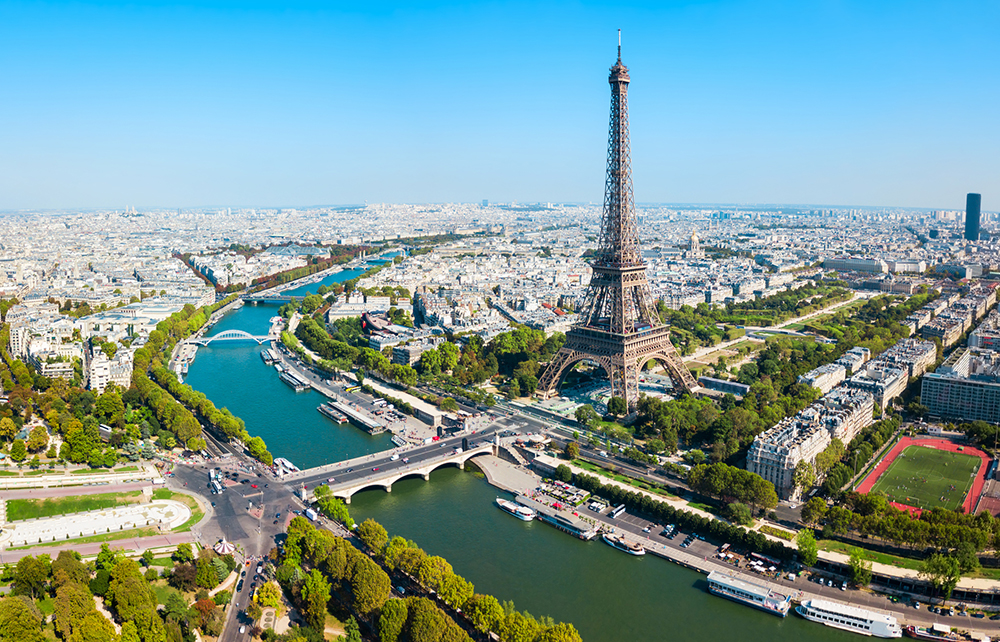Gstaad
A reader’s inquiry as to why I think Paris belongs to yesterday (12 August) has me remembering times past. When did the party end? According to many night owls it was when the ‘Queen of the Night’, Regine, shut down her club New Jimmy’z and moved to London in the 1970s, where she flopped. Others believe it was ‘les événements de soixante-huit’, the student-worker revolt against De Gaulle that did Paris in. Certainly, any way one looks at it, the events of 1968 did signal that the party was over; and it has stayed over ever since.
Mind you, the high jinks had been waning for some time. I first arrived in Paris as a tennis player in 1957, but moved permanently to the City of Light on November 11 1958, Poppy Day. The place was jumping. It was rich and brightly lit, and the people were prosperous.
Sure, the Frogs were Frogs: xenophobic, ungenerous, suspicious and intellectually superior. But the city was also full of foreigners, rich foreigners out to enjoy themselves. Everyone gravitated to Montparnasse where Le Dôme, La Rotonde and Le Sélect were open all night, their ceiling-to-floor mirrors and bordello red interiors a welcome sight after boozing all night at very dark New Jimmy’z a block down the street.
The unreliability of memory screens out the boring and pedestrian, and only the jolly and delightful remain. But Paris back then really suited; its sensual atmosphere was perfection, the Parisian women’s sexuality even more so. And there’s another thing: when one is young, the ordinariness of people one encounters does not register as it does later on. What youth rates as exceptional, maturity denigrates to mediocre.
Everyone knew each other and anyone with good manners and
better looks was welcome
Back then, the rowdy orgy of late capitalism didn’t exist. Nor did the hostility one feels in today’s nightclubs, mainly in the Bagel. Paris sizzled immediately after the first world war. Thousands of Americans arrived in order to have a good time for very little money, including Papa Hemingway, the Murphys, the Fitzgeralds, Cole Porter, Josephine Baker and so on.
After the second world war, although the city was not blown up thanks to General von Choltitz ignoring the Führer’s orders, there was not much food or heat in the city until the early 1950s. Real high life began in the mid-1950s and went on until 1968.
The cultural cocktail that worked its Parisian magic included American expatriates such as James (From Here to Eternity) Jones, Irwin (The Young Lions) Shaw, tennis great Budge Patty, and aesthete Jimmy Douglas. Also there were Dominican playboy and diplomat Porfirio Rubirosa, Greek ship owners Stavros Niarchos and Ari Onassis, South American tycoons and art patrons Arturo Lopez and Antenor Patino, and Jimmy Goldsmith along with a myriad of Chilean and Argentine polo players.
I was lucky to be almost instantly befriended by Rubirosa, known then as the greatest playboy of all time. His house just west of Saint-Cloud was a marvel of luxury and good taste and a ten-minute ride to the polo club of Bagatelle. Rubi, as everybody called him, had such a compelling personality that half the polo players and playboys in Paris spoke and acted like him. In the spring of 1959 he asked me to move into the house he shared with his fifth wife Odile. The reason was sport and fun. We’d box in the ring he had upstairs before breakfast – Rubi decreed no hitting him in the nose or mouth – then breakfast beside the vast lawn and drive to Bagatelle where we’d work the ponies and stick and ball. Next we’d lunch at Le Relais, on Avenue Montaigne and I’d go to the Racing Club in the Bois de Bologne and play tennis with various French Davis Cuppers. Rubi would either visit Madame Claude on Rue de Marignan, or catch a flick on the Champs-Élysées. He’d pick me up from the tennis and after a good dinner at home with his many guests, we’d hit New Jimmy’z.
French society back then had opened up. Everyone knew each other and anyone with good manners and better looks was welcome. André Dubonnet (from that Dubonnet family), once told me that to beguile and to be mischievous was more important than one’s ancestry. I was 22 years old and took it all in.
The nightly visits to New Jimmy’z were the highlights. Behind a shiny black door on Boulevard du Montparnasse, Regine’s sister would look through a spyhole and click you in. One would pass a second inspection from the left, where Françoise Sagan, author of the bestseller Bonjour Tristesse at the age of 18, would sit surrounded by gay American men and young French lesbians. The rest was straight out of a German film of the 1930s: dark, shadowy, and smoky. The only thing missing was Peter Lorre.
Young French aristocrats like the Montesquieu sisters, the Ganay boys, the Francombe girls, Cristina de Caraman and François de Caraman were regulars. And then there were the balls, great affairs to which only la crème de la crème were invited: the Rochambeau ball at their chateau, the Agnelli one at the Bois de Boulogne, the Rothschild one at Ferrières, and the Rede blast on the Île Saint-Louis.
Then came 1968, the streets turned into battlegrounds, and Irwin Shaw told me if I wished to write to head for Vietnam or the Middle East. I followed his advice. I’ve been back to the city many times since, but Paris really was yesterday.







Comments